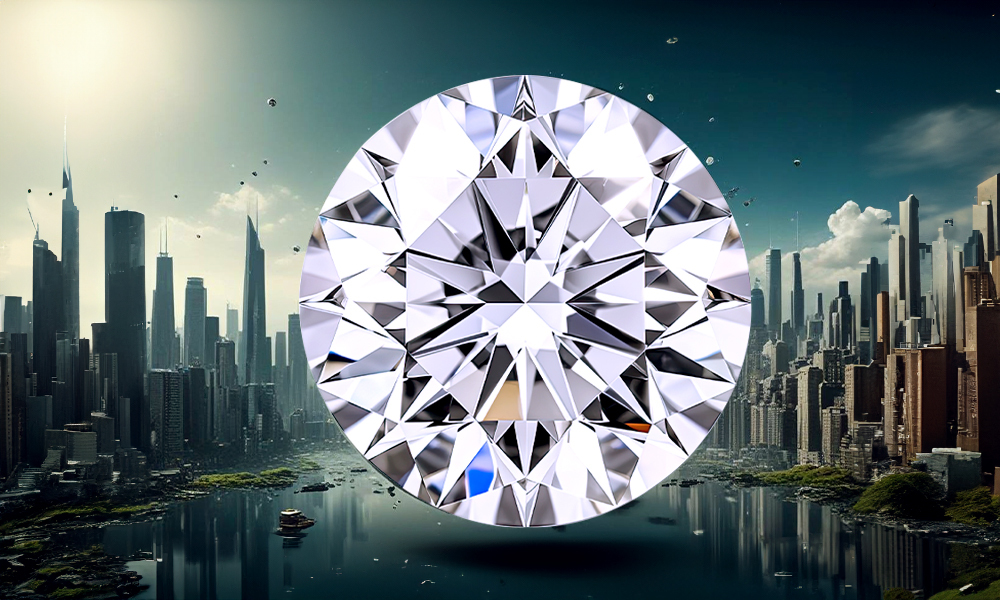Lab-grown diamonds have revolutionized the jewelry industry, offering an ethical and sustainable alternative to mined diamonds. However, when purchasing a lab-created diamond, one of the most critical factors is certification. Two of the most reputable grading institutions for diamonds are the International Gemological Institute (IGI) and the Gemological Institute of America (GIA). In this article, we’ll explore the differences between IGI and GIA certifications for lab-grown diamonds and help you make an informed decision.
Table of Contents
Understanding Lab-Grown Diamonds
Before diving into the comparison, it’s essential to understand what lab-grown diamonds are and why certification matters.
What Are Lab-Created Diamonds?
Lab-grown diamonds, also known as synthetic or cultured diamonds, are created in controlled laboratory environments using advanced technological processes. These diamonds share the same chemical composition, physical properties, and optical characteristics as natural diamonds. The only difference lies in their origin—lab-grown diamonds are not mined from the earth.
Why Certification Matters
Certification ensures that the diamond has been evaluated by a trusted third-party organization. It provides detailed information about the diamond’s 4Cs: Cut, Color, Clarity, and Carat weight. For lab-grown diamonds, certifications from IGI and GIA are among the most recognized globally.
IGI Certification for Lab-Grown Diamonds
The International Gemological Institute (IGI) is one of the largest and oldest gemstone certification labs in the world. Known for its expertise in grading lab-grown diamonds, IGI offers comprehensive reports tailored specifically for synthetic stones.
Key Features of IGI Certification
-
Detailed Grading Reports : IGI provides precise evaluations of the 4Cs, along with additional details like fluorescence and proportions.
-
Affordability : Diamonds certified by IGI are often more affordable than those graded by GIA, making them a popular choice for budget-conscious buyers.
-
Focus on Lab-Grown Diamonds : IGI has been at the forefront of certifying lab-created diamonds since their inception, offering specialized knowledge and expertise.
Pros and Cons of IGI Certification
Pros :
-
Widely accepted and recognized.
-
Cost-effective for consumers.
-
Detailed reports tailored to lab-grown diamonds.
Cons :
-
Some critics argue that IGI’s grading standards may be slightly less stringent compared to GIA.
GIA Certification for Lab-Grown Diamonds
The Gemological Institute of America (GIA) is widely regarded as the gold standard in diamond certification. While GIA initially focused on natural diamonds, they now offer grading reports for lab-grown diamonds, albeit with some differences in approach.
Key Features of GIA Certification
-
Stringent Grading Standards : GIA is known for its rigorous and consistent grading process, ensuring accuracy and reliability.
-
Separate Scale for Lab-Grown Diamonds : Unlike natural diamonds, GIA uses terms like “Colorless,” “Near Colorless,” and “Faint” instead of traditional color grades (D-Z) for lab-grown diamonds.
-
Ethical Assurance : GIA’s reputation for integrity makes its certification highly trusted worldwide.
Pros and Cons of GIA Certification
Pros :
-
Unparalleled credibility and trustworthiness.
-
Strict and consistent grading standards.
-
Ideal for buyers seeking premium quality and assurance.
Cons :
-
Higher cost associated with GIA-certified diamonds.
-
Limited availability compared to IGI-certified stones.
IGI vs GIA: Which Certification Should You Choose?
Choosing between IGI and GIA certification depends on your priorities as a buyer. Here’s a breakdown to help you decide:
Budget-Friendly Option
If you’re looking for a high-quality lab-grown diamond at a competitive price, IGI certification is an excellent choice. IGI-certified diamonds are often more affordable while still providing reliable grading.
Premium Quality and Trust
For buyers who prioritize absolute precision and trust, GIA certification is the way to go. Although GIA-certified diamonds may come at a higher price point, the assurance of strict grading standards justifies the investment.
Conclusion
Both IGI and GIA certifications offer valuable insights into the quality of lab-grown diamonds. While IGI is known for its affordability and focus on synthetic stones, GIA stands out for its unmatched credibility and stringent grading standards. Ultimately, the choice between IGI and GIA depends on your budget, preferences, and the level of assurance you seek.
When purchasing a lab-grown diamond, always request a certification report and carefully review the details. Whether you choose IGI or GIA, rest assured that both organizations provide reliable evaluations to help you find the perfect diamond for your needs.

